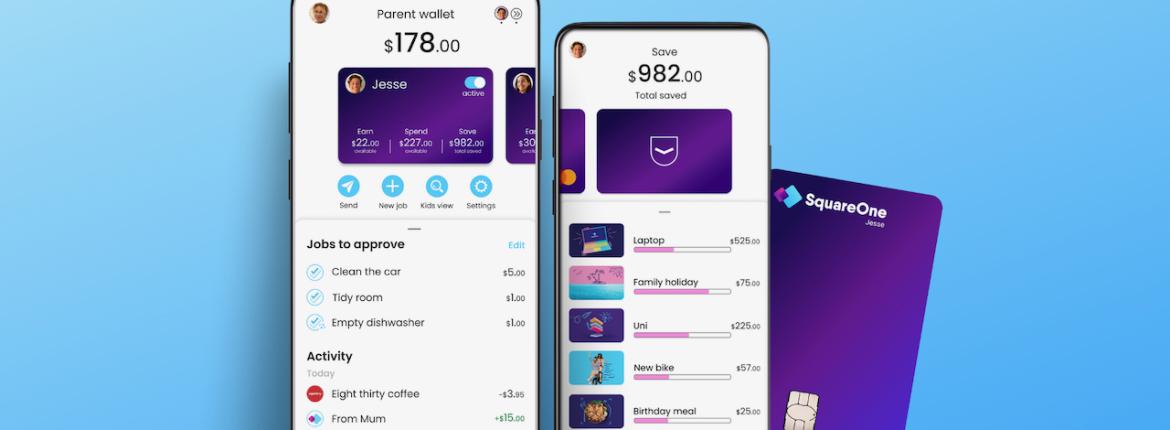Growing up in Northland, Jovan Pavlicevic estimates his financial education was on a par with most of his peers. That is, minimal money education at home and absolutely nothing at school.
The co-founder of a Kiwi-made money management app for children says he went on to make plenty of financial blunders throughout early adulthood.
“I made all the mistakes,” the SquareOne creator says. “Buying fast cars and motorbikes and things of that nature, literally having no idea what I was signing up to. And I think I was similar to most. You’d finish school, leave home and best of luck to you. You were expected to learn financial lessons the hard way in your 20s and 30s.”
Once Jovan and fellow SquareOne business owner Jamie Jermain became fathers, they were determined to prepare their own children more effectively.
However, online banking’s explosive growth has made traditional teaching aids – coins and bank notes, saving books and piggy banks – largely irrelevant.
“Our kids have never handled cash or seen us handle cash. We realised all they were seeing was Mum and Dad at the store, tapping a card every day. To a kid, that looks like magic. You just tap, tap, tap your way through life.
“We’d hold these dad chats around the kitchen table when the kids were in bed, trying to figure out how to get our kids up and running with pocket money, doing small jobs, even having a bank account.”

SquareOne teaches kids about budgeting.
SquareOne was born of the realisation that fellow parents faced the same barriers to fostering money-savvy children. The pair, who met while working in London’s financial services industry, spent two years developing the child-focused app that lets young users track savings, spending and earnings using appealing images and simple graphics.
Caregivers can attach a value to chores then pay on completion, assign household jobs that must be done without payment, and add pocket money automatically.
Children set savings goals in ‘pockets’ rather than accounts and are encouraged to find ‘earning opportunities’ to bump their savings along a progress bar. Some app users are saving towards their first house, others are setting aside money for a toy, a holiday or a splurge on lollies.
“Notifications go to both the parent and child when they’ve hit 60 per cent of the goal. Or done five out of 10 jobs this week. That feeling of hitting a goal, it’s hugely inspiring and motivational to hit the next one.”
Parental controls include an ability to block R18 merchants, set spending limits and view a child’s online transactions. “I’ve seen massive changes in my own kids in terms of awareness. Before, if you’d asked them what does a house cost or a car cost, what do you think it costs to do groceries every week, the answers were just nonsense. Now, they’re part of the conversation rather than bystanders. They make their own purchasing, earning and saving decisions, and there are massive, quantum leaps in terms of their awareness of what time’s worth.”
Jovan says his children quickly worked out the difference between a $2 job and a $3 one and began to negotiate fees or look for extra ways to earn. Along the way, they are learning concepts such as borrowing and interest and asking more money-related questions.
“It's not that we think money is the most important thing. In fact, we stress that the most important things in life are free and that understanding money frees up the time to focus on those important things.” It has already proved valuable in unexpected ways, as parents of children with learning disabilities have latched on to it. “We’ve had some really quite touching feedback from parents saying it’s given their kid a level of autonomy and independence for the first time.
“For anyone, it’s about enabling kids to take those first steps in the real world and start learning lessons with real money, all under the watchful eye of Mum and Dad. Because forewarned is forearmed. I don’t want kids to face the same sort of difficulties I did when I can see they could learn lessons when they’re eight years-old.”
Reported by Sue Hoffart for our Spring 2022 issue




